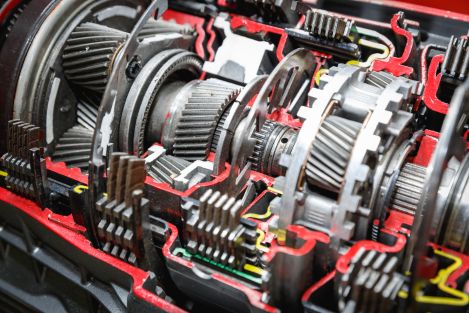
Written by Kayla Jane Barrie Updated on Feb 24, 2025 4 mins read

When it comes to car insurance and transmission failure or damage, people often have many questions, especially about whether their insurance will cover certain repairs. For good reasons - transmission repairs can be very expensive. It's good to know whether you can rely on your insurance coverage or if you’ll have to cover the costs. Below we’ll talk about if insurance covers transmission issues.
The vehicle's transmission is a crucial component that facilitates the transfer of power from the engine to the wheels. It regulates the amount of power delivered by the engine to the wheels, enabling the car to accelerate, decelerate, and change speeds smoothly and efficiently. There are two primary types of transmissions:
Manual transmission
When driving a vehicle with a manual transmission, the driver manually changes gears using a clutch pedal and a gear stick. This allows for greater control over the vehicle's performance, particularly when encountering diverse driving conditions such as steep inclines, slippery roads, or when towing heavy loads.
Automatic transmission
The car is equipped with an automatic transmission system that uses sensors to detect the vehicle's speed and acceleration and automatically shifts gears, allowing for a seamless driving experience without the need for manual gear changes. This feature simplifies the driving process and provides a smoother and more convenient ride.

Transmission damage can be costly and frustrating for car owners. Understanding the causes of damage is crucial for preventing problems and prolonging the life of your vehicle. Here are some reasons for transmission issues:
Standard auto insurance typically does not provide protection for transmission damage or failure resulting from regular wear and tear, mechanical breakdowns, or insufficient maintenance.
However, if the transmission damage is caused by an accident or a covered event, such as a collision, vandalism, or flooding, your policy may cover it.
In the case of mechanical failures or wear-related issues, coverage generally comes from extended warranties or specialized policies, which can assist in covering the costs of repairs or replacement of the transmission and other mechanical components.
If the transmission failure is a direct result of an accident, your comprehensive or collision insurance may cover the repair, depending on the terms of your policy.
Dealers and third-party providers offer extended warranties that cover transmissions and other mechanical components after the manufacturer's warranty expires. These warranties generally include repair or replacement for transmission issues due to mechanical failure. A powertrain warranty focuses on the engine, transmission, and drivetrain. It is often included in new car purchases but is extendable for used vehicles. These options protect against costly transmission repairs not covered by regular policies.
Here are six essential transmission maintenance tips to support the longevity of your vehicle:
Full coverage insurance usually doesn’t cover transmission failure due to wear and tear. It covers accidents, theft, or natural disasters. Extended warranties or mechanical breakdown coverage might cover transmission repairs or replacements.
Transmission repair costs typically range from $1,500 to $3,500, while replacements can cost between $4,000 and $8,000 depending on the vehicle’s make and model.
Transmission failure can result from poor maintenance, low or leaking transmission fluid, harsh driving habits, or manufacturing defects.
Your regular insurance may cover transmission damage caused by a collision or an insured event. To prevent breakdowns, maintain your vehicle regularly and avoid stressing the transmission while driving. Speak to your Ontario car insurance provider for more coverage options.
| Categories | Auto |
|---|---|
| Tags | Repairs and MaintenanceAuto Coverage |
Read our insurance blog to get helpful tips, information and news.
Fatal collisions in Canada rose 9.14% from 2019 to 2023. Discover the latest road safety statistics, provincial rankings, and how these trends affect your auto insurance rates.
Find out if a seatbelt ticket will raise your car insurance rates and how insurers view seatbelt violations.
Ontario’s Project CHICKADEE dismantled a $25 million auto theft ring. Discover how this massive bust targets export enablers and what it means for rising Canadian insurance premiums.
Think refusing a breath test helps your case? In Ontario, it results in a minimum fine of $2,000 and a criminal record. Compare the penalties and protect your future.